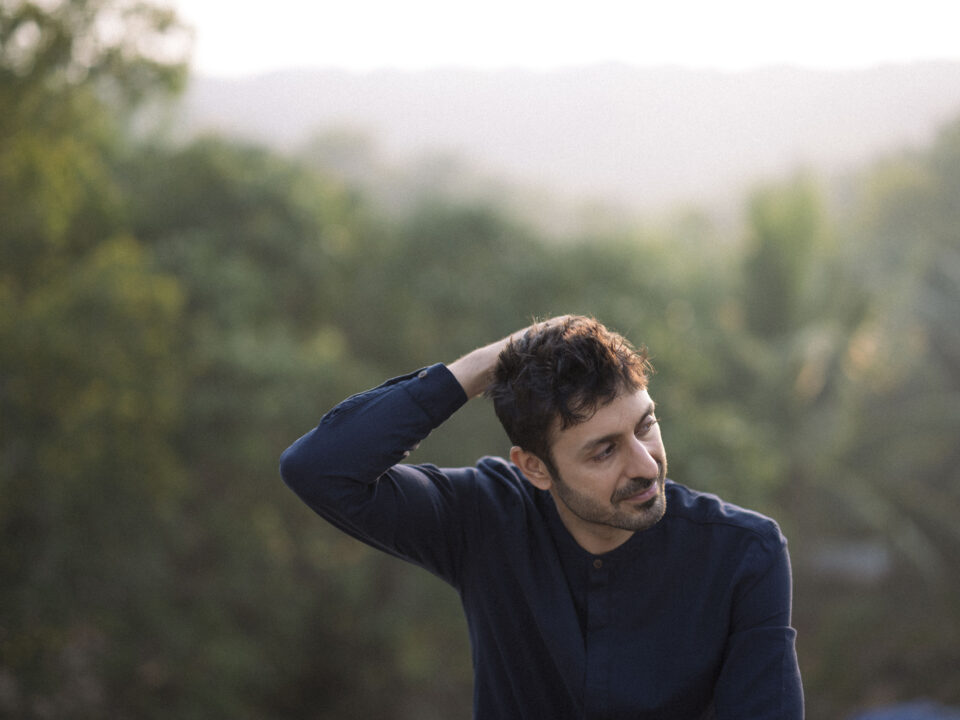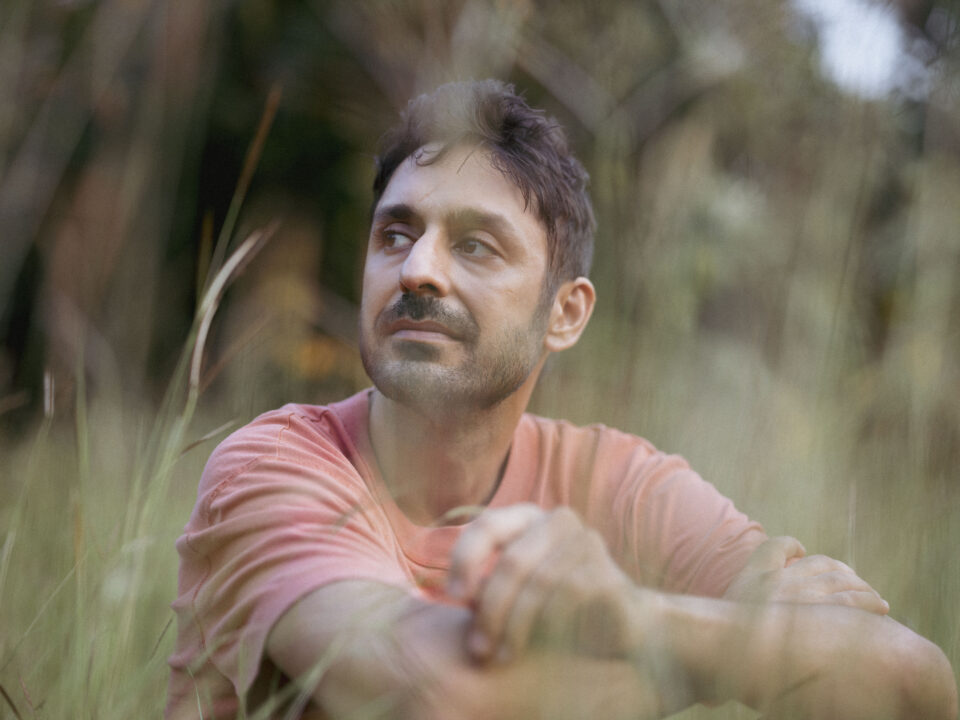Exclusive: Dualist Inquiry Speaks About Novel A/V Set and Debut Lollapalooza India Performance
The artist has wrapped up his break from releasing new music and is set to present the world with his new album ‘When We Get There’
Ahead of the guitarist and music producer’s debut performance at the 2024 edition of Lollapalooza India, Sahej Bakshi, aka Dualist Inquiry, provided a unique insight into his process and vision for what is proving to be a never-before-seen live set, with an audio-visual experience to boost. Having been granted the “poster boy of Indian electronica” moniker by Rolling Stone India during his 2020 cover story, Dualist Inquiry has wrapped up his break from releasing new music and is set to present the world with his new album When We Get There.
Rolling Stone India: Congratulations on the announcement that you’re performing at Lollapalooza India 2024. How do you approach translating the emotions and energy of your electronic music into a live performance setting, especially an 8-piece band? Are there specific elements you emphasize to create a memorable experience for the audience?
Dualist Inquiry: I do make electronic music, but it’s quite a lot of live elements. Even in my solo music, I play several instruments – there’s a lot of stuff going on in there, which is not only programmed by machines. So what that means is that I can play my music back in several different modes, if you will, right.
The way we’re doing it at Lollapalooza, with an 8-piece band is sort of like a full unfurling of the production into a fully live format. And that’s really exciting, because we as musicians need the right kind of context and setting in stage to be able to pull up a show like that. Something like Lollapalooza is the definition of the perfect stage to do something more than what you normally do.
You recently debuted your new live A/V set at Magnetic Fields with the work of the folks at Occupus Studio. Can you tell us what that process was like?
This is something I’ve wanted to do for a long time, and I’m genuinely happy and excited to be implementing it with this album. Occupus Studio, an audio and visual studio based in Goa, boasts an exceptionally talented team, and collaborating with them has been a fantastic experience.
The process began back in September, even before the album was completed. We shared the music with Occupus Studio, and their artists started brainstorming ideas for visuals, exploring different looks and techniques. The goal was to create something that not only complements the music but also appears unique, fresh, and avoids well-worn paths. We aimed to steer clear of anything that has been thoroughly explored, at least in my experience.
Ultimately, we chose a fascinating technique called Point Cloud mapping. To simplify, it’s akin to the LIDAR sensor on newer iPhones. Imagine capturing a video of a room and feeding it into software, which then provides an approximation of the 3D space in the video. We collected 3D Point Cloud models of various spaces, including my garden, studio, streets, forests, and other gardens. These maps became the foundation for our visuals, with cameras navigating through these point clouds throughout the set.
It’s a novel application of a technique typically used for 3D renders of interior design and architecture. Occupus Studio ingeniously incorporated this technique into our visual design, establishing a unique visual language for the project.

Can you share a memorable experience working with another artist or producer that significantly influenced your creative process? How do these collaborations contribute to the evolution of your sound?
It’s interesting that you mentioned collaboration because this year, I worked with Rudy Mukta on a single back in March. When I started writing the album, I initially thought I’d need two or three collaborations to complete it, you know? The idea was to bring together different artists and their forces. However, as the album progressed, I realized it’s essentially a solo project. Still, I had collaborations, not just within the music but also outside of it.
For instance, I collaborated with my friend, Krishna Jhaveri, who played a significant role in the technical aspects as the album was being completed. It was a much deeper collaboration than any musical one I’ve had because he worked with me, providing feedback daily, offering a fresh perspective during the album’s development. Then, the collaboration with Occupus was another profound experience, spanning four or five months.
Musically, there’s a major collaboration happening on stage at Lollapalooza for the first time. I’m thrilled to have a string quartet from the Symphony Orchestra of India joining me – a cinematic, orchestral element added to the show at Lollapalooza. Alongside that, we have the talented Rhys D’Souza on saxophone, plus Krishna Jhaveri on bass. For me, the band embodies live collaboration, where I leverage the talents of these incredible musicians to present the music I wrote alone. It takes on its full form with these musicians, creating a truly immersive experience.
Your upcoming album When We Get There will be your first full-length project since Dreamcatcher in 2016. What can you tell us about the new direction that you’re heading towards?
So, after Dream Catcher, I found myself in an interesting place, uncertain about my next move. I decided not to release another album until I locked in on something or discovered a new direction through daily experimentation. For almost the last eight years since Dream Catcher, I’ve come to the studio most days to write new music. Along the way, I wrote albums in 2019, 2021, and 2022, but none felt right for release. I hadn’t uncovered my next sound.
It’s a delicate balance between continuing the past and exploring something new that feels exciting. After much searching and experimentation, I finally found an emotional space that defines the album for me. It’s a bit cliché to say, but the album is very personal. Each song reflects a specific moment in my life over the last four or five years—navigating changes, understanding the passage of time, and processing experiences.
The album delves into making peace with time, leaning into it, and avoiding the feeling of being left behind in one’s own life. There are moments when you feel out of sync with your own life, catching up with past experiences. This feeling intensified over the last four or five years, particularly with the rapid changes brought about by the pandemic.
In my case, life in India underwent significant transformations. I got married during the pandemic, and now we have a two-year-old child. The album captures reflections and introspections on these profound changes. It’s as if I tore out pages from a very private diary written in 2023, and that became the essence of the album. It’s truly amazing.
Who are some of the acts on the Lollapalooza India 2024 lineup that you’re excited to catch?
The first name that comes to mind is Caribou, who is playing right after us on the same stage at Lollapalooza. This is a significant milestone for me as Caribou is one of my top three favorite artists of all time and a massive source of inspiration. Their influence has played a major role in shaping this new album, making it feel incredibly serendipitous. I’m most excited about this performance by a long shot.
While I might miss a few other artists I’d love to see due to scheduling conflicts, that’s the nature of playing at a festival. I would have liked to catch Royal Blood, but they’re scheduled right before our set. Timing and distances sometimes make it challenging. Nonetheless, I’m looking forward to catching the headliners as well.








